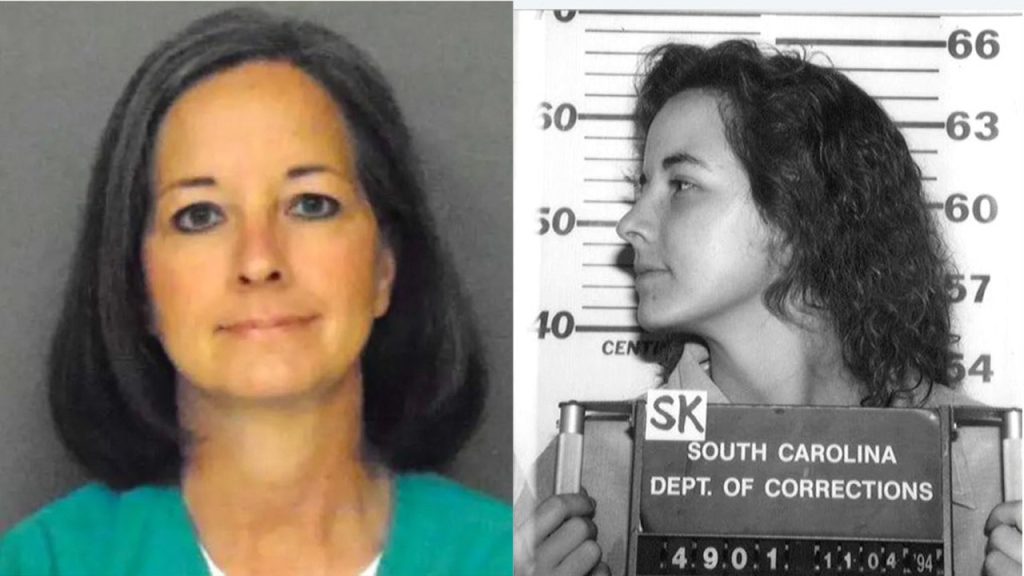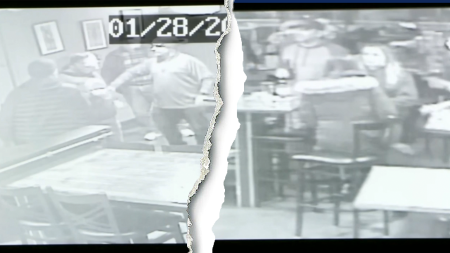Susan Smith, imprisoned for the 1994 drowning deaths of her two young sons, was denied parole in November 2023, thirty years into her life sentence. This denial stemmed from a disciplinary infraction just weeks prior, where Smith was found to have violated prison rules by communicating with a documentary filmmaker about her case, potentially for profit. Recorded prison phone calls reveal Smith discussing letters she received from media outlets and individuals interested in her story. While she expressed disinterest in these inquiries to an unknown male caller, her subsequent actions contradicted these claims, demonstrating a clear interest in revisiting her crime publicly. The parole board’s decision underscores the gravity of her original crime and the impact of her recent disciplinary record on her chances for release.
The newly obtained prison calls provide a glimpse into Smith’s mindset leading up to her parole hearing. In one conversation, she mentions discarding a letter from a national media outlet and dismissing the possibility of speaking to them, claiming she wouldn’t even if permitted. She also mentions receiving a handwritten letter from a stranger in California expressing interest in her story, which she also intended to discard. These accounts, presented as disinterest in media attention, contrast sharply with her later actions involving the documentary filmmaker. The discrepancy raises questions about her sincerity and potentially reveals a calculated effort to control the narrative surrounding her case as she approached her parole eligibility date.
The nature of Smith’s communication with the filmmaker further complicates her situation. According to the incident report, their conversations extended beyond a simple interview. They discussed potential filming for a documentary, explored ways to monetize her story, and delved into specific details of her crime, including the contents of her car when it entered the lake and her initial plan to jump from a bridge while holding her sons. These details, coupled with the fact that the filmmaker deposited money into Smith’s prison account, suggest a more involved and potentially exploitative relationship than a mere interview. This transgression ultimately led to Smith losing her phone, tablet, and canteen privileges for 90 days, a significant disciplinary action in a prison environment.
Smith’s actions violated South Carolina Department of Corrections policy, which prohibits inmates from conducting telephone or in-person interviews, though written correspondence is permitted. The policy aims to maintain order and control within the prison system while respecting the rights of victims and their families. By engaging with the filmmaker and potentially profiting from her crime, Smith demonstrated a disregard for these rules and a lack of remorse for her actions, impacting the parole board’s decision. This breach of trust further damaged her credibility and undermined any arguments for her rehabilitation and suitability for release.
During her parole hearing, Smith expressed remorse for her actions, claiming she was scared and didn’t know how to tell loved ones about the boys’ deaths. She acknowledged the horrific nature of her crime and apologized, stating she wished she could take it back. However, the parole board remained unconvinced, citing the severity of her crime and her institutional record, which now included the recent disciplinary infraction involving the filmmaker. The board’s unanimous decision to deny parole reflects the gravity of her actions, both past and present, and underscores the importance of maintaining prison regulations and respecting the rights of victims.
The denial of parole for Susan Smith represents a significant setback in her bid for freedom. The recent disciplinary action, coupled with the enduring impact of her original crime, painted a picture of an individual still grappling with the consequences of her actions and potentially attempting to manipulate the narrative surrounding her case. While she expressed remorse during her parole hearing, it was ultimately insufficient to sway the board in her favor. The case serves as a reminder of the complex considerations involved in parole decisions, the weight given to institutional behavior, and the lasting impact of violent crimes on victims, families, and the community at large.










